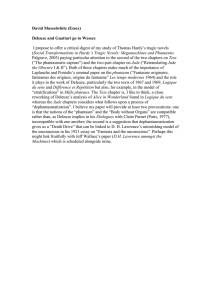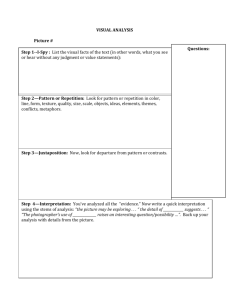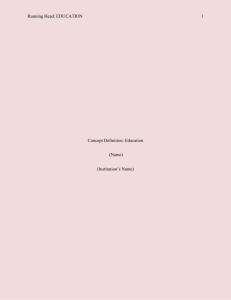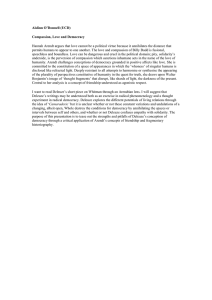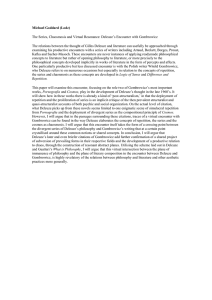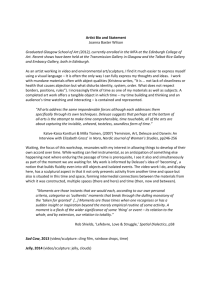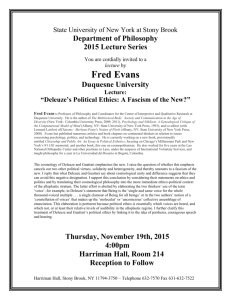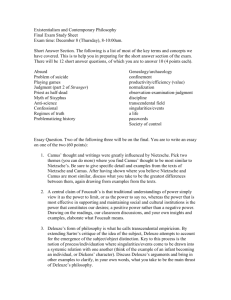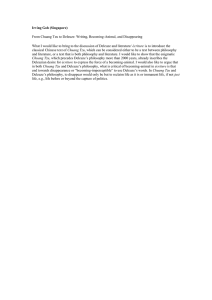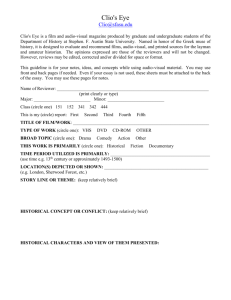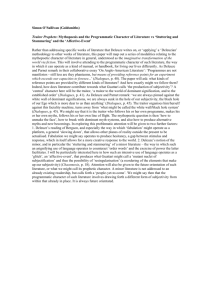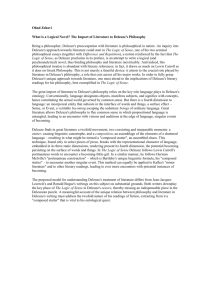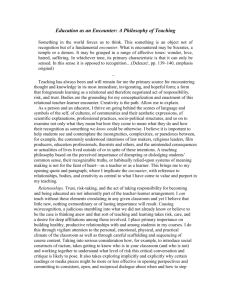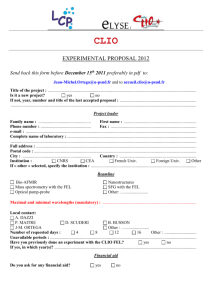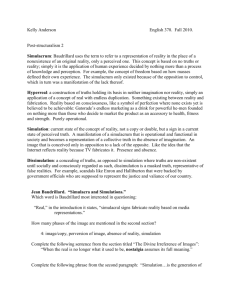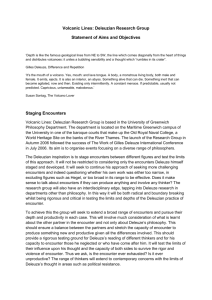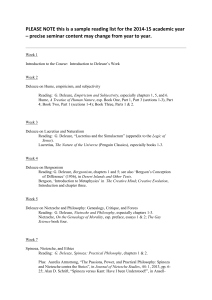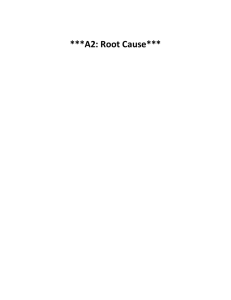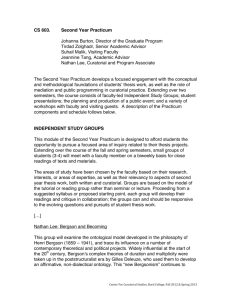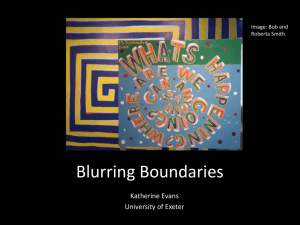Deleuze, Péguy and the Event in Literature
advertisement
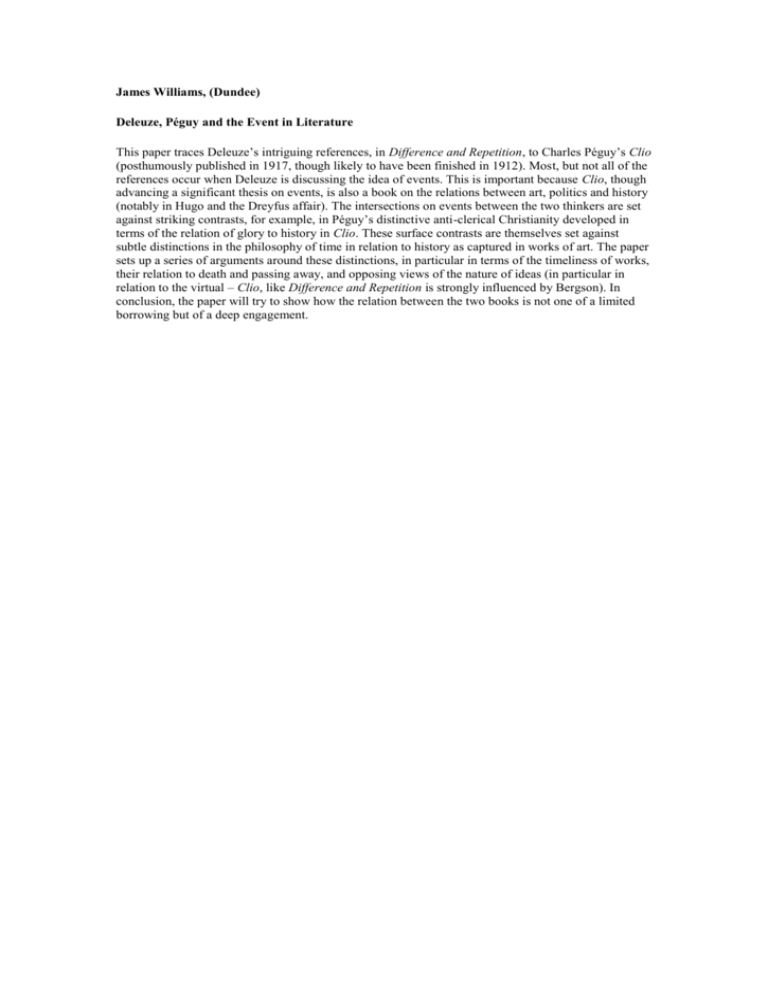
James Williams, (Dundee) Deleuze, Péguy and the Event in Literature This paper traces Deleuze’s intriguing references, in Difference and Repetition, to Charles Péguy’s Clio (posthumously published in 1917, though likely to have been finished in 1912). Most, but not all of the references occur when Deleuze is discussing the idea of events. This is important because Clio, though advancing a significant thesis on events, is also a book on the relations between art, politics and history (notably in Hugo and the Dreyfus affair). The intersections on events between the two thinkers are set against striking contrasts, for example, in Péguy’s distinctive anti-clerical Christianity developed in terms of the relation of glory to history in Clio. These surface contrasts are themselves set against subtle distinctions in the philosophy of time in relation to history as captured in works of art. The paper sets up a series of arguments around these distinctions, in particular in terms of the timeliness of works, their relation to death and passing away, and opposing views of the nature of ideas (in particular in relation to the virtual – Clio, like Difference and Repetition is strongly influenced by Bergson). In conclusion, the paper will try to show how the relation between the two books is not one of a limited borrowing but of a deep engagement.
